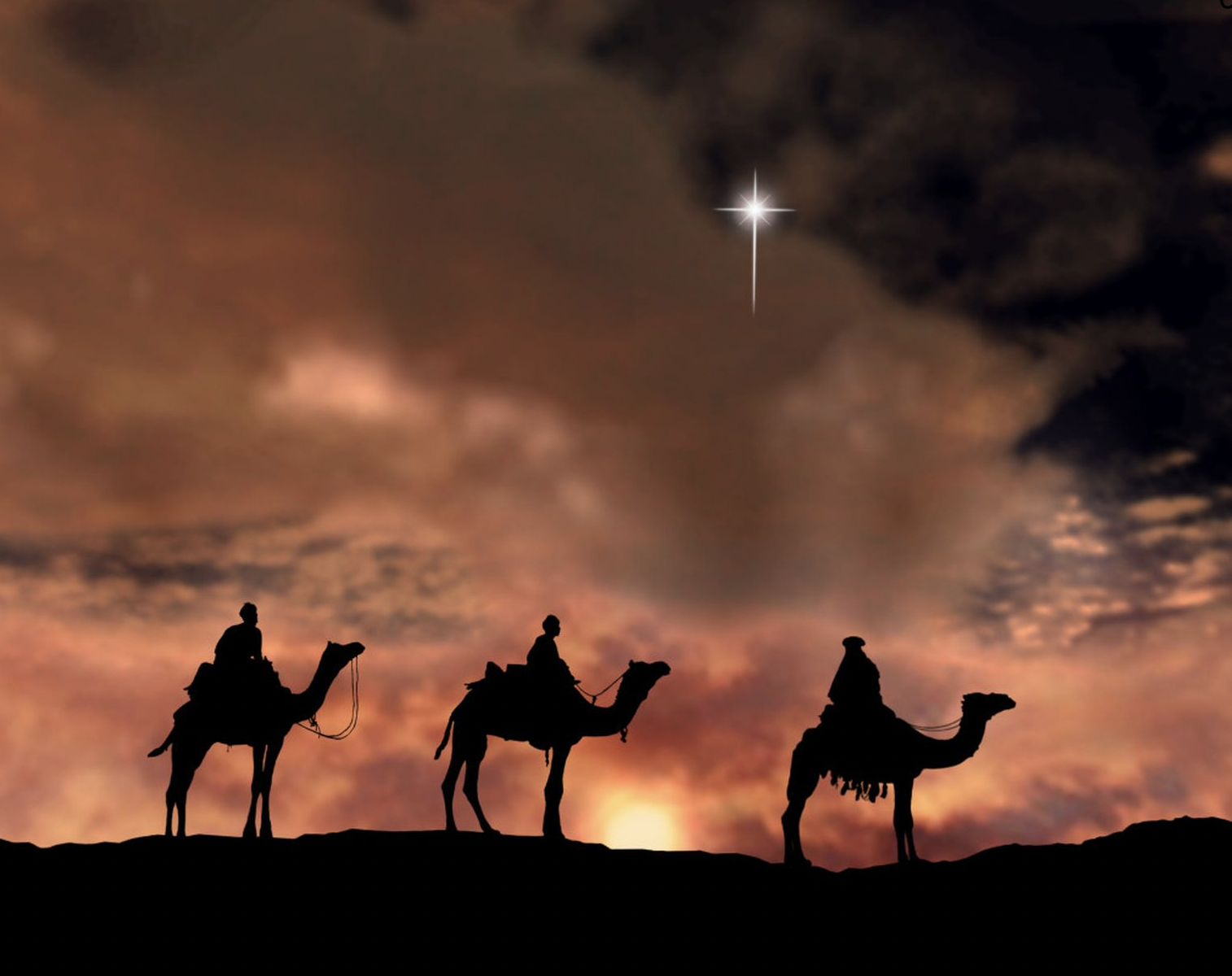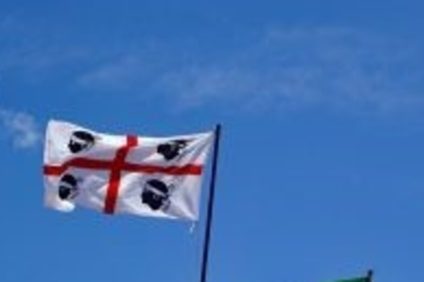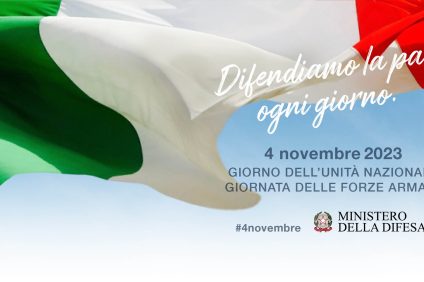The Magi: the emblematic figures of the crib on the day of the Epiphany. But who are the three nobles who ride their camels to Bethlehem to pay homage to a child born in a cave?
The Magi in the Gospel of Matthew
The evangelist Matthew is the only one to mention them in his texts and tells that three Magi, coming from the East, arrive in Jerusalem following the trail of a star in the sky. Arrived at the court of King Herod they ask where they can find the King of the Jews, to go and worship him. Herod, suspicious, summons all the wise men of the court. Thus he discovers that the prophet Micah had long predicted the birth of a child in Bethlehem who would become the king of kings. Having learned all this, Herod urges the three special travelers to bring him more precise information.
His real intent is to take advantage of the good faith of the three men to find the child who could usurp the throne and thus kill him. The three Magi, always chasing the star, reach the cave where they find the newborn baby with his mother Mary and his father Giuseppe. They bow down before him and offer him their gifts: gold, frankincense and myrrh. They reserve him all the honors that are due to a true king. Having completed the visit, they leave Bethlehem but do not return to Herod, who thus does not have the necessary information to hurl his anger and hatred against a poor helpless child.
Gaspar, Melchior and Baldassarre
The Three Kings arrive in Bethlehem on January 6 which, for the Catholic Church, is the feast of the Epiphany or the manifestation of divinity. God, in the role of a newborn child, reveals himself to the wise representatives of the three nobles who arrived from the East. Gaspar, Melchior and Baldassarre, these are the names of the three men who, according to tradition, represent the pagan peoples (the primitia gentium) which pays homage to the Infant Jesus by recognizing him as the only God. According to the Greek historian Herodotus, the Magi (or Wizards) were a tribe of northern Persia made up of priests of the Mazdaic religion. The Magi studied the stars: the positions and movements of the stars in the firmament.
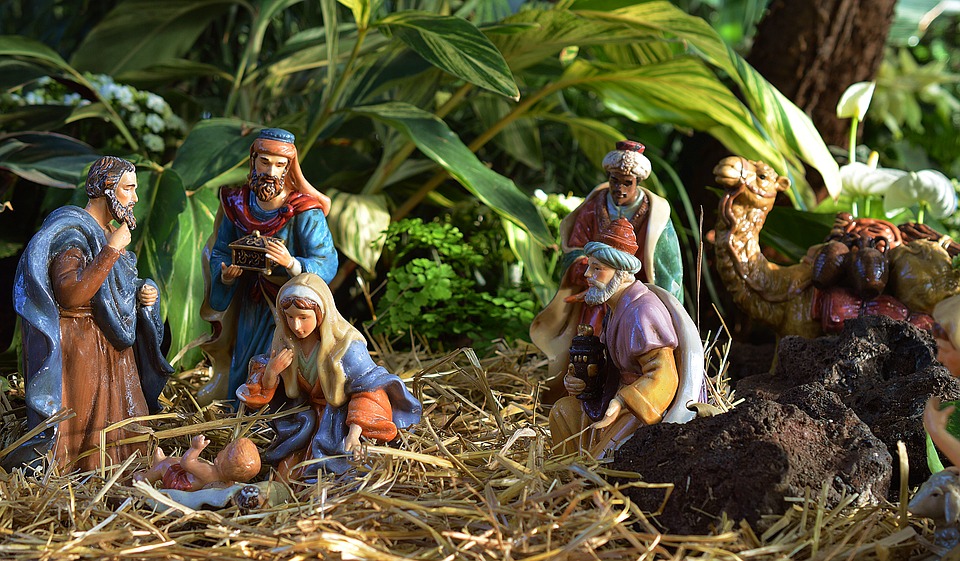
They represented science and wisdom and the human races descended from the three sons of Noah: Shem, Ham and Japheth. In fact, one of them, Belshazzar, was dark-skinned representing black peoples. The presence of the three Magi, exponents of different races in the cave, means welcome, integration and sharing willed by God for all the peoples of the earth. Scientists, astronomers, men of great knowledge and culture. The Magi bring gold, frankincense and myrrh as gifts to Jesus. L'gold it represents the royalty of the child who will become king of kings; L'incense it exalts its divine nature. Finally the myrrh which is a resin, a useful substance to heal wounds, it symbolizes the sacrifice of Jesus: the verb who becomes incarnate, the god who becomes man to redeem humanity.
The relics of the Three Kings
Marco Polo in Milione, the book in which he recounts his adventure in the lands of the East, he says he visited the tomb of the Magi in the Persian city of Sheba. Other historical sources narrate that the tombs of the Magi were found by Sant'Elena during a pilgrimage in Holly Land. The relics were then brought to Constantinople, in the church of Santa Sofia, before being transferred to Milan. When Frederick Barbarossa occupies the city brings the relics to Cologne, where they still rest in a chapel of the cathedral. Other relics can be found in the parish of Brugherio.
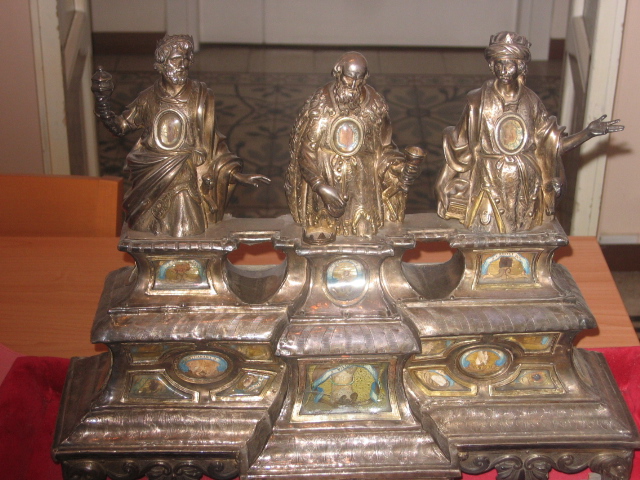
They are a gift of Sant'Ambrogio, bishop of Milan, who gave them to his sister Marcellina, a Benedictine nun, who later became a saint. They are three small phalanges of the fingers of the Magi, placed in the church of the convent where Santa Marcellina lived with other sisters. The relics remained in the monastery until 1613. After some time the cardinal Federico Borromeo he ordered their transfer to Brugherio, where they are still kept in a precious reliquary.

